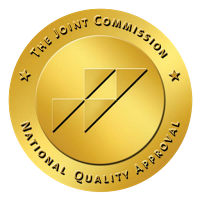Get Help With Your Addiction

Is Alcoholism A Mental Disorder?
Are you curious about whether alcoholism is a mental disorder?
Is alcoholism truly a mental disorder? Dive deep into the intricate relationship between alcoholism and depression, uncovering the science and psychology that binds them. This comprehensive exploration sheds light on the complexities of alcohol addiction, offering insights for those seeking understanding and support.
The Diagnostic Criteria for Alcohol Use Disorder
You should evaluate your drinking habits to determine if they meet the diagnostic criteria for alcohol use disorder. The diagnostic criteria for alcohol use disorder are outlined in the Diagnostic and Statistical Manual of Mental Disorders (DSM-5).
This manual provides a set of guidelines and assessment tools that mental health professionals use to diagnose various mental disorders, including alcohol use disorder. The criteria include symptoms such as craving for alcohol, difficulty controlling or stopping drinking, tolerance, withdrawal symptoms, and continued use despite negative consequences.
It’s important to note that meeting these criteria doesn’t necessarily mean you have a mental disorder, but it’s a starting point for further assessment and intervention. If you’re concerned about your drinking habits, it’s recommended to seek professional help for a comprehensive evaluation.
The Debate Over Alcoholism as a Mental Illness
Alcoholism is a divisive issue within the mental health community, with experts on both sides debating whether it should be classified as a mental illness.
Argument That Alcholism Meets The Criteria for A Mental Disorder
Those in favor argue that alcoholism meets the criteria for a mental disorder, as it involves impaired control, continued use despite negative consequences, and cravings. They believe that classifying alcoholism as a mental illness would reduce the stigma surrounding it and increase access to treatment.
Argument That Alcholism Is A Behavior Problem
On the other hand, opponents argue that alcoholism is a behavioral problem rather than a mental illness. They believe that classifying it as such would medicalize a social issue and shift the responsibility from the individual to a mental health disorder.
The effectiveness of different treatment approaches for alcoholism remains a topic of discussion, with experts exploring strategies such as medication, therapy, and support groups.
The Impact of Alcoholism on Mental Health
The relationship between alcoholism and anxiety is complex, as alcohol can temporarily alleviate anxiety symptoms, leading to a vicious cycle of reliance on alcohol for relief.
How does alcoholism affect your mental health?
Alcoholism has a significant impact on mental health, with strong links to anxiety and depression. Research shows that individuals who suffer from alcoholism are more likely to experience symptoms of anxiety.
Alcoholism is closely linked to depression
Alcoholism is closely linked to depression. Excessive alcohol consumption can disrupt the brain’s chemical balance, leading to depressive symptoms. Moreover, individuals with depression may turn to alcohol as a form of self-medication, exacerbating their mental health issues.
It’s crucial to recognize the connection between alcoholism and mental health, as addressing both issues simultaneously is essential for effective treatment and recovery. If you or a loved one are struggling with drug or alcohol addiction call Sanctuary Recovery Centers in Phoenix, Arizona to get the best treatment plan to start the healing process.
The post Is Alcoholism A Mental Disorder? appeared first on Sanctuary Recovery Centers.

Call 1 (844) 798-TRUE and Start Your Journey to Recovery Today!

Office Address
11645 N Cave Creek Rd
Phoenix, AZ 85020
Other Crisis Contacts
National Suicide Prevention Line:
1-800-273-8255
Call Toll Free
Local Phone Number
(480) 309-9945
Fax
(480) 281-5225
Office Hours
M-F: 8:30 AM – 5:30 PM
Fentanyl Addiction Specialist
Please reach out with questions or concerns regarding you or a loved one in fentanyl addiction.
If this is an emergency, please call 911 or go to your nearest emergency room.










